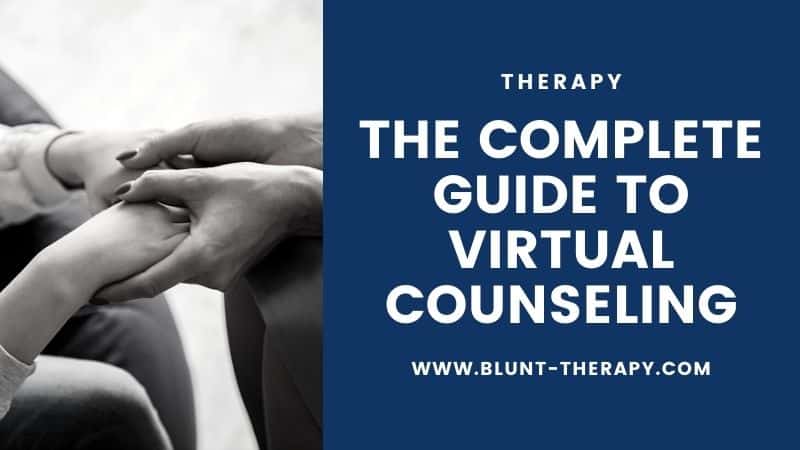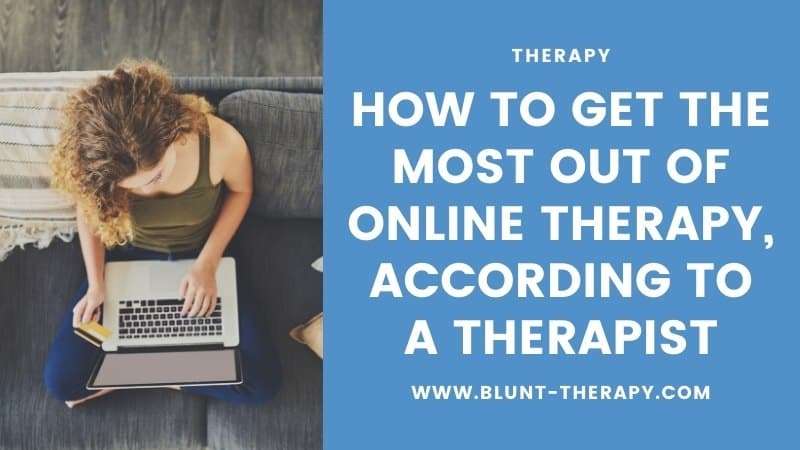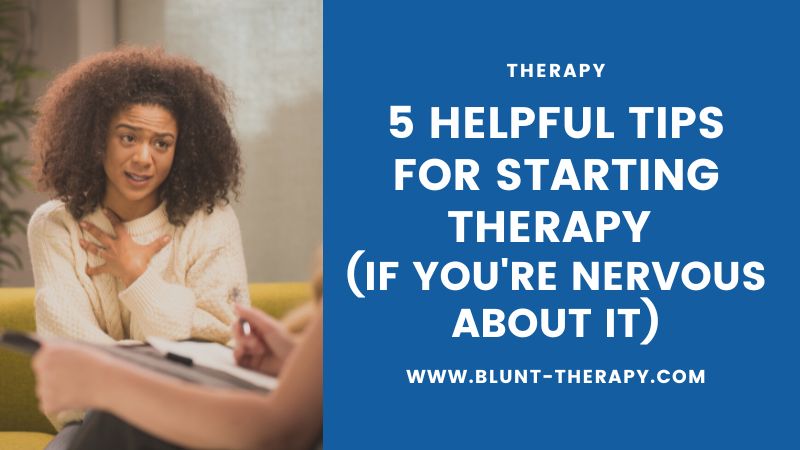Table of Contents
Affiliate link notice: As an affiliate of BetterHelp and other third-party vendors, We will receive compensation if you make a purchase using the links provided on this page. For more information, visit our disclosure page.
Last Updated on April 23, 2023 by Randy Withers, LCMHC
Did you know that online counseling has been around for more than 40 years? It’s true. We tend to think of telehealth as a new (and thus untested) innovation, but it has been used to treat people’s mental health since 1982.
The research is pretty clear, too. Online counseling can be as effective as traditional counseling. It offers high quality therapy to millions of people, many of whom are stuck at home or otherwise unable to engage in an in-person setting.
And did you know that online couples counseling is also an option these days?
If you and your partner are interested in working on your relationship, but in need of a convenient method to do so, online couples counseling is certainly worth your consideration.

What Is The Point of Couples Counseling?
The goal of online couples counseling is to provide a safe and comfortable environment to both partners to identify their problems and work together to change things for the better.
Online couples counseling provides similar benefits as face-to-face interactions with a therapist, albeit over the internet, phone calls or video services. In this way both partners are provided a safe and secure platform to interact with a therapist, even though they themselves may be miles apart or in the same room.
Couples engage in counseling for any number of reasons, regardless of age, sexual orientation, or even relationship status. Contrary to popular belief, you don’t need to be married, nor do there need to be any problems for a couple to benefit from counseling.
Couples seek counseling all the time for some of the following reasons:
- To work through issues before getting married
- To learn how to co-parent after a divorce
- To work on communication, parenting, and conflict resolution
- To foster intimacy
- To resolve or overcome problems such as adultery or drug addiction
- To navigate life stressors (e.g., old age, retirement, moving to a new area)
As you can see, you don’t need to wait until you’re staring divorce in the face before engaging in couples counseling. In fact, the more proactive you are, the better.
Why try online couple’s counseling?
Online couples counseling may be a good option for couples who can’t participate in in-person therapy for lots of reasons, like cost or limited access to local therapists. Online counseling allows couples to find the help they need—often at a lower cost—from the comfort of their own home. It can also cut down on the need for childcare and commutes.
But let’s be real here – cost and convenience aren’t the only factors to consider. Relationships, even in the best of circumstances, are difficult to navigate. The benefits of couples counseling are clear, especially when you look at marriage and the consequences of divorce:
- The US has the 6th highest divorce rate in the world;
- Somewhere between 40-50% of all marriages in the US end in divorce
- The more times you get divorced, the more likely you are to get divorced again. Your second marriage has about a 60% chance of failure and your third will end in divorce about 75% of the time.
- The average divorce costs about 15-20,000 dollars!
- Children who come from broken homes are far more likely to develop mental health issues
While many couples make use of in-person counseling, the fact is we live in a world where both partners usually have separate careers and sometimes even separate lives. Online couples counseling makes a lot of sense just for the sheer convenience it affords.
Keep in mind, too, that your therapist will have the requisite amount of education, training, and licensure that his or her profession requires. In the United States, any couples counselor will have earned, at minimum, a masters degree. They must also be licensed to practice in the state where you reside.
So, Is Online Couples Counseling Effective?
The short answer is yes, provided both partners have the willingness and desire to commit to the process. If a couple is truly ready to do the work, their success is almost guaranteed.
Is Online Counseling Ever A Bad Idea?
Unfortunately, not every one or every situation is appropriate for online counseling. People who don’t have access to the internet, for example, aren’t a good fit. People who struggle with psychosis or paranoia are usually best served in-person as well.
Similar suggestions hold true for online couples counseling, too. It is probably not a good idea for any couple who:
- Does not have access to the necessary technology
- Is unwilling or unable to participate
- Is actively addicted to drugs or alcohol
- Is actively committing adultery
- Are actively suicidal or homicidal
- Is experiencing any form of violence, physical or otherwise
Some of these issues would need to be resolved on an individual basis before couples counseling could be ethically considered.
Recommended Apps For Couples
We all benefit from the convenience of our smartphones and the services they offer. Out of the millions of apps out there, the three most popular relationship apps making the rounds today are:
- Kindu: (Free on Google Play or Apps Store).This is a perfect app for planning a date night and provides relationship suggestions and ideas on spending time together. Kindu uses a fun activity to improve intimacy in a relationship and once both partners create an account they can participate in fun activities to add spice to their lives. Kindu cards suggest having a romantic date at a drive-in or treating your partner like a king or a queen for a day.
- Love Nudge (Free on Google Play and Apps Store).The designers of this app believe that exercise is vital to keep a relationship healthy. The Love Nudge app uses five love languages which allow the couple to communicate with each other more effectively. The goals, like giving a back rub, are pre-arranged with alerts. The app then keeps a track of how often you meet these goals and the satisfaction it brings to your relationship.
- Relish ($99.99 subscription for six months for a couple with a free 7-day trial) Nearly 85% of the couples who seek relationship counseling affirm that it is the fault of the other partner. Relish strives to improve this imbalance by pairing everyone with a relationship coach who then provides hand-picked lessons based on the answers given in a relationship quiz. Lessons include date night ideas, mindful moments and self-awareness.
If you are looking for a therapy platform instead of just an app, then Bestonlinetherapy.com recommends ReGain as the leading couples therapy site. A subsidiary of BetterHelp, it includes a mobile app, but also a lot of other features the apps mentioned above don’t.
While insurance isn’t accepted, they do have financial aid programs and users can expect to pay as little as $80 a month.
Final Thoughts
Whether you choose in-person or online couples counseling, I want to congratulate both you and your partner for taking an important and brave first step.
While therapy of any kind often requires hard work and harsh truths, the vast majority of couples who engage in it report that it was time well spent.
FAQ About Online Couples Counseling
Q1: Is online couples counseling as effective as in-person couples counseling?
Yes, online couples counseling can be just as effective as in-person couples counseling. Research has shown that online therapy can be equally beneficial in improving relationship satisfaction, communication skills, and overall well-being of couples.
Online couples counseling offers the convenience of accessibility, flexibility in scheduling, and the ability to engage in therapy from anywhere, making it a viable option for many couples.
Q2: What types of issues can be addressed in online couples counseling?
Online couples counseling can address a wide range of issues that couples may face, including but not limited to communication problems, conflict resolution, infidelity, trust issues, intimacy concerns, premarital counseling, and navigating life transitions.
Couples can work with a qualified therapist to identify and address their specific concerns, develop effective coping strategies, and improve their relationship dynamics.
Q3: How do I choose a qualified online couples counselor?
Choosing a qualified online couples counselor is essential for a successful counseling experience. Look for licensed and experienced mental health professionals who specialize in couples therapy and are trained in online counseling techniques. Check their credentials, experience, and reviews from previous clients. It’s also important to find a counselor who aligns with your values and approach to therapy.
Many online directories and platforms offer a search feature to help you find a suitable counselor.
Q4: How can my partner and I prepare for online couples counseling?
To prepare for online couples counseling, start by discussing your goals and expectations with your partner. Identify the specific issues you want to address in therapy and any concerns or questions you may have.
Make sure you have a reliable internet connection and a private and quiet space for your counseling sessions. Be open and willing to actively participate in the process, and communicate openly and honestly with your counselor.
Remember that therapy is a collaborative effort, and your active engagement and commitment to the process can greatly contribute to the success of online couples counseling.
Q5: How Do You Do Online Couples Therapy?
Online couples therapy can be done through video conferencing or online messaging. It typically involves scheduling sessions with a qualified mental health professional who specializes in couples therapy. During the sessions, couples engage in open and honest communication with the therapist, who will guide and facilitate the process.
Online couples therapy may involve various techniques such as active listening, conflict resolution strategies, and relationship skill-building exercises to help improve the dynamics of the relationship.
Q6: What type of counselor is best for couples?
A qualified couples counselor or therapist is typically the best choice for couples. Look for a mental health professional who specializes in couples therapy, has relevant experience and credentials, and is licensed or certified in their field.
Couples counselors may have different therapeutic approaches, so it’s important to find one that aligns with your values and goals for therapy. A compassionate and non-judgmental therapist who creates a safe and supportive environment for both partners is often ideal for couples counseling.
Q7: What is the best online couples therapy for long-distance relationships?
The best online couples therapy for long-distance relationships may vary depending on the specific needs and preferences of the couple. Some popular options for online couples therapy include telehealth platforms like Talkspace, BetterHelp, and Regain. These platforms offer secure and confidential online counseling sessions with licensed and experienced couples therapists who are trained in providing therapy remotely.
It’s important to research and choose a reputable online therapy platform that meets the unique requirements of long-distance relationships.
Q8: What’s the difference between couples therapy and couples counseling?
The terms “couples therapy” and “couples counseling” are often used interchangeably and refer to the same type of therapy for couples. Both involve working with a qualified mental health professional to address and resolve issues in the relationship, improve communication skills, and enhance overall relationship satisfaction.
Q9: Is it normal for unmarried couples to go to counseling?
Yes, it is normal for unmarried couples to seek counseling or therapy. Couples counseling is not limited to married couples and can be beneficial for any couple, regardless of their marital status. Unmarried couples can benefit from counseling to improve communication, resolve conflicts, develop healthy relationship patterns, and enhance their overall emotional connection.










